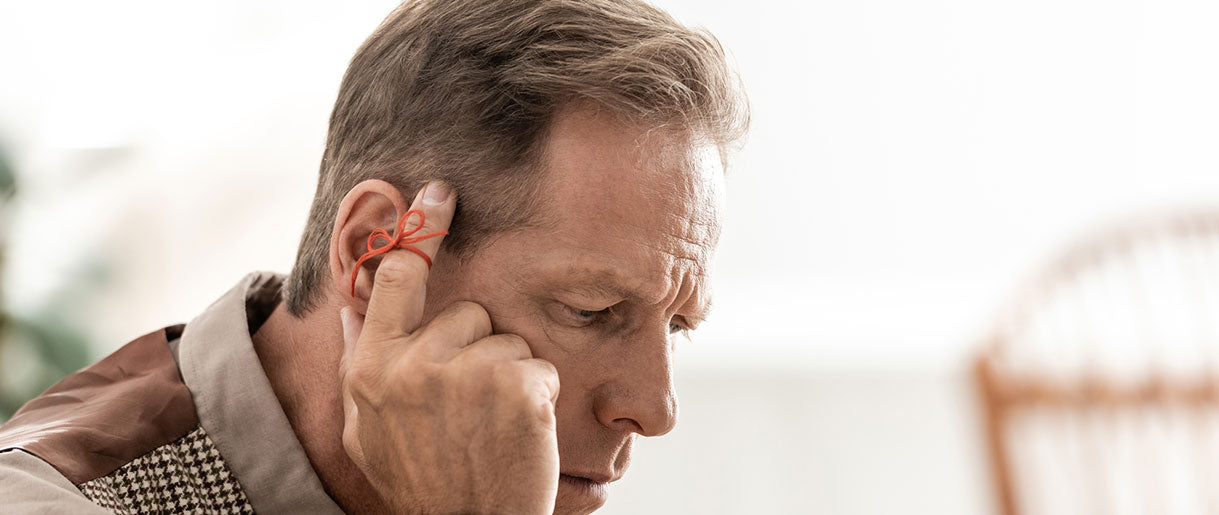Children with autism spectrum disorders (ASD) have long been administered minerals, vitamins, and natural supplements to help with sleep, gastrointestinal distress, and vitamin deficiency, which are frequent in ASD children and adults. But have you heard of mushroom supplement for autism?
Mushrooms, in general, stimulate and strengthen the immune system. Neuro and immunostimulants found in medicinal mushrooms, in particular, can strengthen and improve brain and immune system activity.
Recent studies have indicated that certain medicinal mushrooms may help treat this ailment and alleviate some symptoms. Medicinal mushrooms, a staple of traditional Chinese medicine, appear to benefit children and adults with autism spectrum disorder.
Reishi and Lion's mane have the highest potential among the mushrooms that can be used to treat autism. Here's what you need to know about these best mushrooms for autism.
Understanding Autism

Autism spectrum disorder, or ASD, is a developmental disorder caused by differences in the brain. ASD patients may have a recognized difference, such as a genetic disease. Other causes are unknown. Scientists believe that many factors of ASD act together.
Being autistic does not imply that your child has a disease or illness. It means their brain functions differently than other people's. Autism affects approximately one in every 36 children in the United States, according to the Centers for Disease Control(1).
Because autism is a spectrum disorder, each autistic individual has unique strengths and limitations. Some persons with ASD, for example, may have outstanding speech skills, while others may be nonverbal.
People with autism learn, reason, and solve problems in various ways, ranging from highly skilled to severely impaired. Others with ASD may require extensive assistance in their everyday life, whereas others may require less assistance and, in some circumstances, live entirely independently.
Current ASD treatments aim to alleviate symptoms that interfere with quality of life and everyday functioning. Because ASD affects each person differently, people with ASD have unique strengths and problems and different treatment needs.
Exploring The Potential Of Mushrooms For Autism

Mushrooms are rich in bioactive metabolites, including polysaccharides, dietary fibers (β-Glucans), proteins (ribosome-inactivating proteins), enzymes (e.g., ribonucleases, superoxide dismutase, laccases), and many other biomolecules (lectins, secondary metabolites, antifungal proteins, protease inhibitors, and ubiquitin-like proteins), which have been shown to be successful in the prevention and treatment of several human health conditions. In the connection between dietary variables and microbiota composition in autism, the nutritional profile of mushrooms may play a role.
Among the many advantages of medicinal mushrooms are:
- They're high in calcium, magnesium, omega-3 fatty acids, and other minerals.
- Oxidants found in medicinal mushrooms protect the human body from oxidative stress and cell damage.
- Medicinal mushrooms help to enhance the immune system, soothe the mind and body, and increase metabolism.
- Improves the body's rest and repair system.
- Because of its anti-inflammatory effects, mushrooms also nourish and enhance the skin.
- Medicinal mushrooms improve memory and recall.
- Improves nervous system recovery.
Mushroom Varieties With Potential Benefits For Autism
Two notable mushrooms, Reishi and Lion’s mane, are known to have potential benefits for autism. Let’s review each of them.
Lions mane mushroom for autism

Although there is no cure for autism spectrum disease, Lion's mane appears to reduce many of its symptoms. The benefits of this mushroom for ADHD cannot be undervalued, with many people using it in addition to, or instead of, Adderall and other prescription ADHD medications. Many parents of children with ADHD or autism use adaptogens like Lion's mane to manage their child's symptoms.
Hericium erinaceus reduces brain fog, increases cognitive functioning, and is extremely useful to the brain. This mushroom is also quite effective in treating anxiety, a common symptom of autism.
Promotes nerve growth
Lion's mane stimulates brain neuron growth (neurogenesis). According to clinical research, one of Lion's mane mushroom's qualities is its capacity to increase nerve growth factor (NGF) proteins. These proteins aid in the normal development and growth of nerve cells.
The effects of this alternative Chinese medicine staple on NGF-mediated neurite outgrowth were examined in vitro(2). The researchers focused on hericenone K and observed that it promoted the development of NGF proteins.
Neurite overgrowth—the primary mechanism in neuron differentiation—increased. Based on these observations, it appears that these medicinal mushrooms enhance neurogenesis, at least in mice.
Improves cognition
Lion's mane increases cognitive processes like memory, focus, and learning while alleviating brain fog symptoms.
Hericium erinaceus increased cognitive functioning and memory in mice, according to a study published in the International Journal of Medicinal Mushrooms(3). Researchers examined spatial memory in wild-type mice given Lion's mane mushroom supplement in this study.
The mice were given activities such as the new item identification test and the Y maze test before they began eating Lion's mane. After two months of consuming Hericium erinaceus, the mice performed considerably better in these activities, most likely due to hippocampus neurogenesis triggered by Lion's mane use.
While research on the effects of Lion's mane on cognitive skills in humans is limited, certain studies, such as a Japanese study(4) on the effects of Lion's mane on memory, are encouraging.
Reduces anxiety
Anxiety, a significant symptom of autism spectrum disorder, can be reduced by Lion's mane. In a Japanese study of menopausal women(5), the effects of Lion's mane mushroom supplements on anxiety and depression levels were investigated.
The women were assessed for irritation and anxiety levels before and after four weeks of consuming Lion's mane extract. When these measures were assessed again, the women who took Lion's mane mushroom supplement scored much lower than their control group peers, indicating fewer stress and anxiety symptoms.
Reishi mushroom for autism

Over the decades, Reishi mushroom has been used to cure various ailments and disorders. In Chinese culture, Reishi is renowned as the Queen Healer and the fungus of immortality.
Because of its soothing effect, Reishi is particularly useful in treating mental illnesses such as ASD and ADHD. The mushroom also improves memory.
This unique mushroom has been proven to alleviate anxiety while promoting brain and cognitive function, aiding concentration and learning. In truth, Chinese medicine describes Reishi mushroom as a relaxing herb that boosts energy and does not make you sleepy.
Considerations And Precautions

Mushrooms are usually thought to be safe for autism, and they have various health advantages. However, it may have adverse effects depending on your age, health state, and other circumstances. Dryness in the throat and mouth are common side effects of mushroom supplements for autism. The nasal passages may become irritated, and you may experience stomach distress.
It is advised to avoid mushroom supplements if you are allergic to mushrooms in general. Some people with autism may have gastrointestinal issues, which mushroom supplements may worsen. As with any supplement, consult your health care professional to discover if the mushroom is best for you and the appropriate dosage for your health needs.
Approximately half of the patients with autism(6) suffer from low blood pressure. So, ingesting Reishi mushrooms may be risky if you have low blood pressure. Since autism is related to abnormalities in platelet count(7), higher doses of Reishi mushroom may increase the likelihood of bleeding in those with extremely low platelet counts.
Lion's mane mushroom may also help to slow blood coagulation. This may increase the likelihood of bruising and bleeding in those with bleeding disorders. If you have autism and suffer from bleeding issue or taking blood thinner medicine (anticoagulant/antiplatelet), you should avoid consuming Lion's mane mushroom supplements.
Incorporating Mushrooms Into Autism Management

Mushroom supplements are available in powders, capsules, liquid extracts, teas, coffees, mouth sprays, gummies, and occasionally in combination with other items. Some supplements include only one type of mushroom extract, while others blend extracts from Reishi and Lion's mane.
Mushroom powders can enhance your favorite beverages, from frothy lattes to freshly brewed tea. Adding mushroom powder to afternoon smoothies or shakes adds nutrients to a pleasant treat. They can even be used to flavor soups and broths.
A well-balanced diet, in addition to supplementation, is a vital component of a successful treatment program for behavioral disorders and can have a significant positive effect on your memory, mood, cognition, and behavior.
FAQs About Mushrooms For Autism
Which Mushrooms Are Being Studied For Their Potential Effects On Autism?
Reishi and Lion’s mane are the top two mushrooms studied for their benefits on autism. In addition, mushrooms like Shiitake, Maitake, and Cordyceps have shown potential.
How Might Mushrooms Support Cognitive Function And Behavior In Autism?
Autistic children have several cognitive impairments, particularly with a set of mental skills that involve planning, short-term memory, self-control, and decision-making. Lion's mane mushrooms boost cognition, memory, mental clarity, and mood.
Can Mushroom Supplements Interact With Medications Commonly Used For Autism?
Mushroom supplements are generally safe for use with medications for autism. However, it is best to speak with a healthcare provider before use.
Key Takeaways
Autism and other behavioral problems are notoriously difficult to cure. They can have a substantial detrimental influence on the person experiencing them or their family. Though autism treatment is typically a collaborative endeavor, medicinal mushrooms for autism have tremendous therapeutic potential.
References
- Autism Prevalence Higher, According to Data from 11 ADDM Communities, (1)https://www.cdc.gov/media/releases/2023/p0323-autism.html
- Chemical constituents fromHericium erinaceus and their ability to stimulate NGF-mediated neurite outgrowth on PC12 cells, (2)https://www.sciencedirect.com/science/article/abs/pii/S0960894X15301256
- Dietary Supplementation of Lion’s Mane Medicinal Mushroom,Hericium erinaceus (Agaricomycetes), and Spatial Memory in Wild-Type Mice, (3)https://www.dl.begellhouse.com/journals/708ae68d64b17c52,6de384366c0c5922,5af64f332e1ca306.html
- Improvement of cognitive functions by oral intake of Hericium erinaceus, (4)https://pubmed.ncbi.nlm.nih.gov/31413233/
- Reduction of depression and anxiety by 4 weeks Hericium erinaceus intake, (5)https://pubmed.ncbi.nlm.nih.gov/20834180/
- Autism spectrum disorders: Autonomic alterations with a special focus on the heart, (6)https://www.heartmindjournal.org/article.asp?issn=2468-6476;year=2017;volume=1;issue=2;spage=78;epage=83;aulast=Ellenbroek#:
- Platelet studies in autism spectrum disorder patients and first-degree relatives, (7)https://www.ncbi.nlm.nih.gov/pmc/articles/PMC4619313/









Let Us Know Your Comments